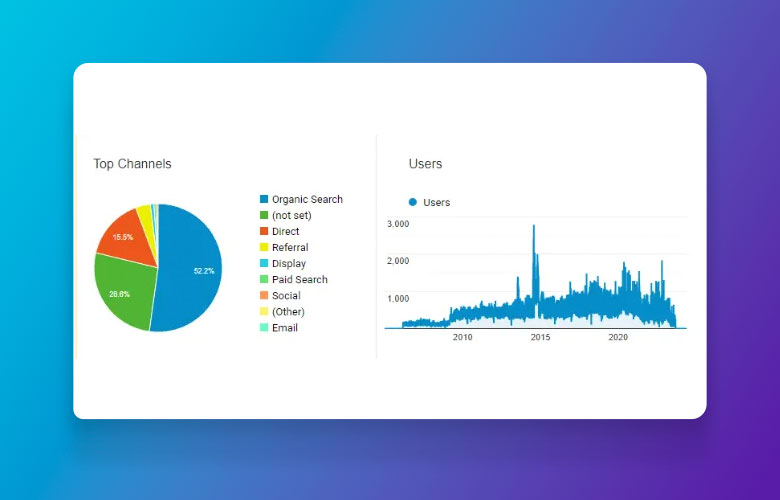12 Changes to Florida Bar Advertising Rules for 2013

This is a review of the Florida Bar’s new advertising rules. Since we are a web design and internet marketing company, we are mainly reviewing the rules from a perspective of interactive media. However, note the rules apply to any advertisement (print, radio, TV, direct mail, websites, social media and anything on the Internet).
Overall, the rules are relaxed and consolidated. They are easy to follow and dictate how you can advertise.
- Want to use testimonials? Great! You can. Just follow some simple rules.
- Want to showcase your big wins? Great. You can. So long as you can back up your statements, and do not mislead the public, you should be fine.
There are more technical rules that you will want to read here [http://www.floridasupremecourt.org/decisions/2013/sc11-1327.pdf] and see our comments below.
Issue – Social Networking & Banner Ads
One issue that may need to be resolved by the Bar and Florida Supreme Court is the use of social networking. Right now, it is lumped in with all advertisements, which may create some issues with precise language and following the rules specifically (i.e. how to put your name and office location on every single Tweet or Facebook post). Of course, hopefully the Bar only means your social networking page needs to have that info, but even that may be an issue due to character restrictions on some platforms. So we will have to see if this leads to any changes or cases about this topic.
We called the Florida Bar Hotline number (850-561-5780)and asked about social networking posts. Per Florida Bar, every Tweet must include the name of the lawyer, law firm and office address! Every Facebook post also needs to have that info, according to the Florida Bar. So, if you have a long name, longer firm name, and have an office on a long street, you probably can Tweet about 20 to 50 characters of the 140 character limit. Fun!
Another potential issue is banner ads. Google Adwords, and other ad systems, have set amount of character limits. There is no real possibility to list the firm name, location, and attorney in charge of the advertisement in the ad (and make the ad effective). My suggestion is that the Bar should simply consider those differently and so long as the ad goes to the firm’s website that lists that information that should be fine. However, the rules are not specific on banner ads so far.
Anyways, overall the new rules are a welcome change. It makes everything simpler.
12 Changes to Florida Bar Advertising Rules
- All Advertisements are covered by the Rules. There are exceptions detailed in the statute, but in general all websites, print ads, brochures, direct mail, email, billboards, video, TV, radio, sand script, signal flags, hieroglyphics, and other forms of communication are covered.
- “Say that you Love Me” – So long as an advertisement is objectively verifiable, then that statement will not violate the rules. This is a huge change and allows for lots of different ideas. Just make sure you can prove that you love me or have one that case.
- Don’t Use Superlatives, without Proof – Again, don’t say you are the “Best Trial Lawyer in Florida.” That is misleading and not verifiable. Unless there is some new Olympic competition that we do not know about, don’t use “Best” (and no, winning moot court probably does not count).
- Websites do not Need to be Reviewed – Websites do not need to follow the filing and review requirements by the bar. Of course, you will want to have a professional review your website for general errors, design mistakes, and poor organization (we see those too many times).
- Testimonials – Testimonials are allowed, so long as you follow specific guidelines and have a disclaimer.
- Past Results – Toot your own horn. If you have won a big case, you can put it on your website, so long as it is objectively verifiable.
- Websites same as other Ads – Previously, websites were deemed requests for information, so they did not need to follow all rules. This has been changed, websites must follow the rules. The Court also declined to adopt the “two-click” rule for testimonials and past results. That is actually good, so long as your testimonials follow certain guidelines and your past results are factually accurate, you are set.
- Brochures and Other Requests for Info – Also any other information upon request is exempt from filing and review. So that is good for brochures that lawyers give out in meetings and in their office.
- Burden of Proof – Best of all, the Florida Supreme Court states that the Bar has the burden of proving a statement is false or not objectively verifiable. So if a lawyer is brought before the Bar’s disciplinary proceeding, then the attorney has an opportunity to defend and the burden is on the Bar.
- Comments are for Guidance Only – The new rules speak for themselves, but the Florida Bar & Florida Supreme Court does give some guidance.
- New Rules Numbers – The Florida Supreme Court adopted the new rules proposed by the Florida Bar. They deleted all prior subchapter 4-7 rules. They smartly renumbered the new rules to avoid confusion with prior rules.
- Judge Dredd – Florida Supreme Court dictates how judges can call themselves. Basically use “Joseph Dredd, Florida member, former circuit judge” or “Joseph Dredd, retired circuit judge.” Just don’t call yourself “Judge Dredd” unless you are a current Judge.
If you want to see to see our detailed analysis of the Florida Bar Rules, please review our long post. Yes, it’s long, but worth the read.
If you have any other big changes in the rules, leave a comment.
About Us
Did you know more than 200 clients have worked with PaperStreet for more than 10 years?
Get a Free Website
Analysis and Consultation
Marketing Services



